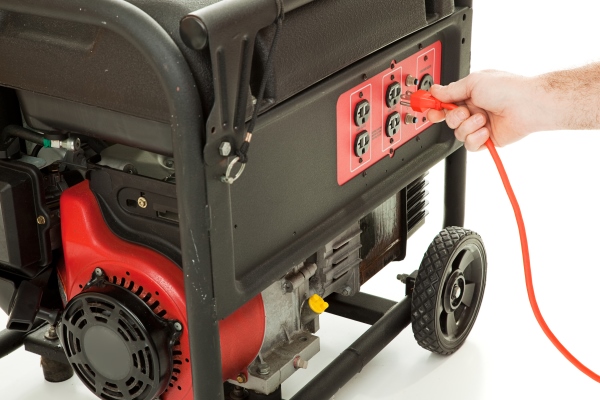Carbon Monoxide Poisoning Kills Two

WCPO.com – 2/3/2011
GERMAN TOWNSHIP, Ohio - An Ohio state trooper and his wife were found dead in their German Township home in Montgomery County Thursday morning.
The Ohio State Highway Patrol Post in Lebanon says 48-year-old Tim Hall and his wife were found in the garage. It appears the couple died from carbon monoxide poisoning.
They were using a generator to heat their home after losing power.
According to police, it appeared that Hall went out to the garage and was overcome by fumes. Investigators believe his wife then went to check on her husband and was also overcome.
Another trooper went to the home when Hall failed to report for work. "Something happened during the night. They went outside to check, went outside in the garage to check it and it appears they were maybe overcome with the fumes at that time," said Chief Lew Wilcox.
Hall had been with the Ohio State Highway Patrol from almost 25 years and was close to retirement, according to a supervisor.
The incident remains under investigation.
Every year there are tragic stories such as this in newspapers around the country. Carbon monoxide (CO) is truly “the silent killer” and can cause death within minutes depending of the level of the exposure.
CO is found in combustion fumes, such as those produced by cars and trucks, small gasoline engines, stoves, lanterns, burning charcoal and wood, and gas ranges and heating systems. CO from these sources can build up in enclosed or semi-enclosed spaces. People and animals in these spaces can be poisoned by breathing it.
The most common symptoms of CO poisoning are headache, dizziness, weakness, nausea, vomiting, chest pain, and confusion. High levels of CO ingestion can cause loss of consciousness and death. Unless suspected, CO poisoning can be difficult to diagnose because the symptoms mimic other illnesses. People who are sleeping or intoxicated can die from CO poisoning before ever experiencing symptoms.
How can I prevent CO poisoning from my home appliances?
- Have your heating system, water heater and any other gas, oil, or coal burning appliances serviced by a qualified technician every year.
- Do not use portable flameless chemical heaters (catalytic) indoors. Although these heaters don't have a flame, they burn gas and can cause CO to build up inside your home, cabin, or camper.
- If you smell an odor from your gas refrigerator's cooling unit have an expert service it. An odor from the cooling unit of your gas refrigerator can mean you have a defect in the cooling unit. It could also be giving off CO.
- When purchasing gas equipment, buy only equipment carrying the seal of a national testing agency, such as the American Gas Association or Underwriters' Laboratories.
- Install a battery-operated CO detector in your home and check or replace the battery when you change the time on your clocks each spring and fall.
How do I vent my gas appliances properly?
- All gas appliances must be vented so that CO will not build up in your home, cabin, or camper. • Never burn anything in a stove or fireplace that isn’t vented.
- Have your chimney checked or cleaned every year. Chimneys can be blocked by debris. This can cause CO to build up inside your home or cabin.
- Never patch a vent pipe with tape, gum, or something else. This kind of patch can make CO build up in your home, cabin, or camper.
- Horizontal vent pipes to fuel appliances should not be perfectly level. Indoor vent pipes should go up slightly as they go toward outdoors. This helps prevent CO or other gases from leaking if the joints or pipes aren't fitted tightly.
How can I heat my house safely or cook when the power is out?
- Never use a gas range or oven for heating. Using a gas range or oven for heating can cause a build up of CO inside your home, cabin, or camper.
- Never use a charcoal grill or a barbecue grill indoors. Using a grill indoors will cause a build up of CO inside your home, cabin, or camper unless you use it inside a vented fireplace.
- Never burn charcoal indoors. Burning charcoal — red, gray, black, or white — gives off CO.
- Never use a portable gas camp stove indoors. Using a gas camp stove indoors can cause CO to build up inside your home, cabin, or camper.
- Never use a generator inside your home, basement, or garage or near a window, door, or vent.
How can I avoid CO poisoning from my vehicle?
- Have a mechanic check the exhaust system of my car every year. A small leak in your car's exhaust system can lead to a build up of CO inside the car.
- Never run a car or truck in the garage with the garage door shut. CO can build up quickly while your car or truck is running in a closed garage. Never run your car or truck inside a garage that is attached to a house and always open the door to any garage to let in fresh air when running a car or truck inside the garage.
- If you drive a vehicle with a tailgate, when you open the tailgate, you also need to open vents or windows to make sure air is moving through your car. If only the tailgate is open CO from the exhaust will be pulled into the car.
